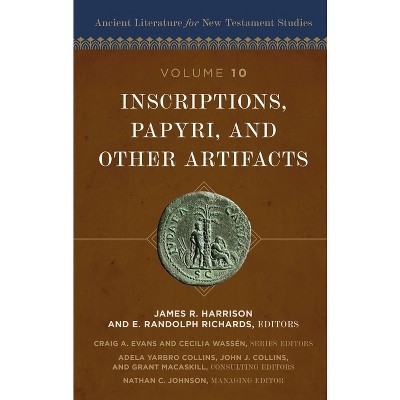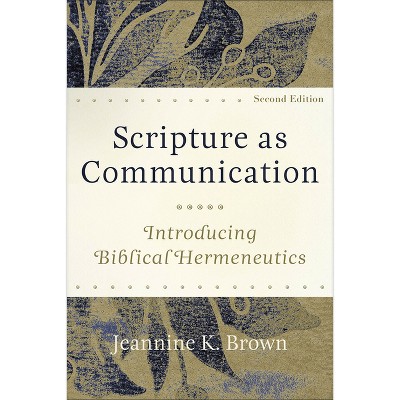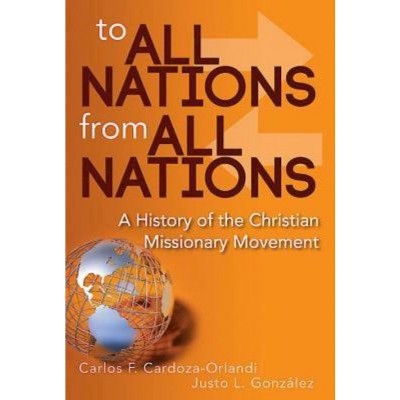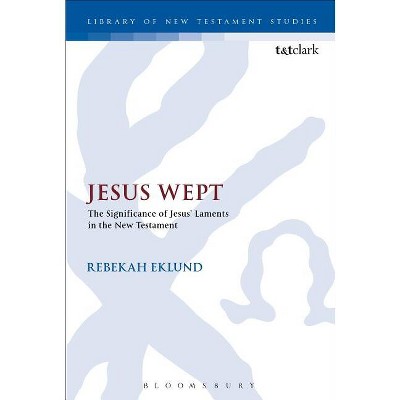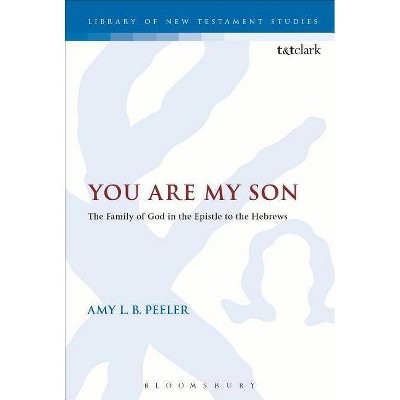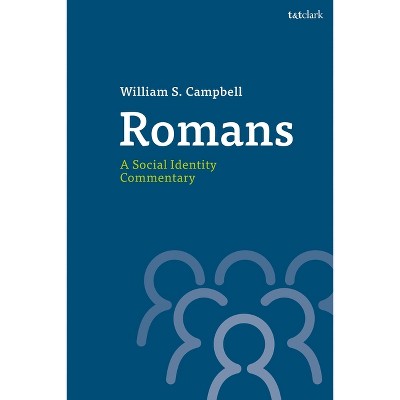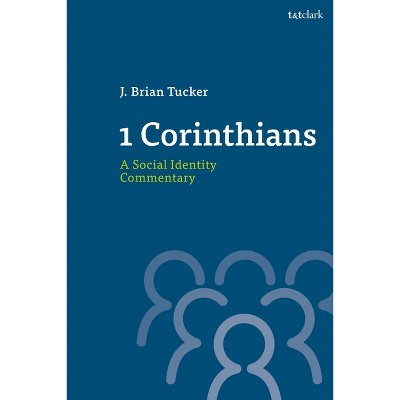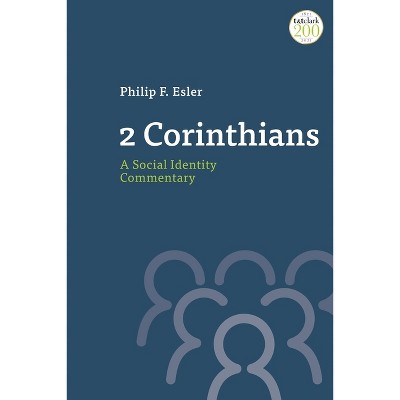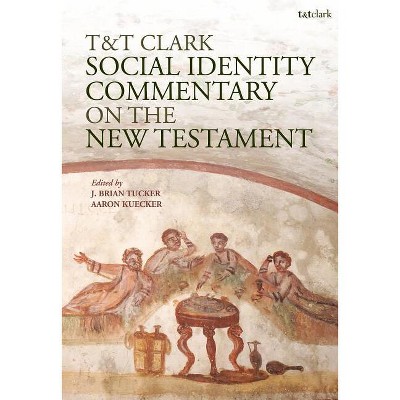Paul and the Creation of Christian Identity - (Library of New Testament Studies) by William S Campbell (Paperback)

$58.95 when purchased online
Target Online store #3991
About this item
Highlights
- Paul is traditionally viewed as separating from the churches of Peter and of Jewish Christ-followers to promote his own mission, eventually triumphing in the creation of a church with a gentile identity.
- About the Author: Dr. William S. Campbell, Reader in Biblical Studies, University of Wales, is author of 'Paul's Gospel in Inter-Cultural Context' (1992) and is Editor of Journal of Beliefs and Values.
- 218 Pages
- Religion + Beliefs, Biblical Studies
- Series Name: Library of New Testament Studies
Description
About the Book
An examination of how the church eventually became a gentile movement, exploring how this was as the result of various historical, social and cultural factors in which the earliest vision of diversity within the church was lost, contrary to Paul's vision in which subgroup identities of Jew and gentile in Christ were recognized.Book Synopsis
Paul is traditionally viewed as separating from the churches of Peter and of Jewish Christ-followers to promote his own mission, eventually triumphing in the creation of a church with a gentile identity. In Paul and the Creation of Christian Identity, Campbell argues that the Pauline mission represents only one strand of the Christ-movement that should not be universalized to signify the whole. In conjunction with his gentile mission, Paul acknowledges Jewish identity as an abiding reality, rather than as a temporary, weak form of faith in Christ. Paul's gentile mission was not a reaction to his Jewish heritage, but a transformation based on his vision of Christ: thus the identity of Christianity cannot be that of a new religion.Review Quotes
'concise account of the history of modern research on the topic' 'My hope is that someone with Campbell's superb grasp of these issues in Paul might soon provide us with a considered engagement of contemporary Messianic Judaism, free of the reactionary polemic which so often characterizes responses from scholars within Jewish and mainstream Christian theology. Discussions of Jewish-Chrsitian relations can no longer continue with integrity without such engagements. Paul and the Creation of Christian Identity is essential reading for them' Doug Harink, King's University College, Canada--Sanford Lakoff
"Campbell has here produced a thoughtful challenge and contribution to a number of contemporary, scholarly themes. The issues touched on together with his particular conclusions are constructive."--Sanford Lakoff
"Campbell presents some compelling arguments as he charges the 'New Perspective' with not being radical enough in challenging Christian anti-Jewish rhetoric." Journal for the Study of the New Testament Booklist 2009--Sanford Lakoff "Journal for the Study of the New Testament "
"Clearly written... many good and thoughtful observations." David G. Horrell JSNTS Booklist, 2007--Sanford Lakoff
"William Campbell's study is a valuable contribution to our understanding of Christian identity formation in the first century CE... His grasp of the material is commendable, as is the precision with which he writes." Ralph J. Korner, Bryn Mawr Classical Review, July 2009--Sanford Lakoff
Book Mentioned--Sanford Lakoff
Campbell's study is an important assessment of the role of identity formation in Paul's thinking. It advances the discussing of Pauline though in creative and significant ways" Expository Times Vol.119 No.10 July 2008
Reviewed By Donald A Bullen inTheological Book Review Vol. 19 No. 1 2007
"This book should be read by Pauline scholars, especially those working in Romans. Campbell's creativity and ability to sustain an argument makes this work well worth the time invested and provides a much needed perspective in the current debate on identity formation in early Christianity." Criswell Theological Review
"A rich and illuminating study ... The author has produced a highly readable scholarly monograph with an attractive thesis." - Theology
Book Mentioned--,
Reviewed by Bengt Holmberg in STK 4/2007
Reviewed in International Review of Biblical Studies, 2007.
Reviewed By Donald A Bullen in Theological Book Review Vol. 19 No. 1 2007
About the Author
Dr. William S. Campbell, Reader in Biblical Studies, University of Wales, is author of 'Paul's Gospel in Inter-Cultural Context' (1992) and is Editor of Journal of Beliefs and Values.Dimensions (Overall): 9.11 Inches (H) x 6.4 Inches (W) x .65 Inches (D)
Weight: .77 Pounds
Suggested Age: 22 Years and Up
Number of Pages: 218
Genre: Religion + Beliefs
Sub-Genre: Biblical Studies
Series Title: Library of New Testament Studies
Publisher: Continnuum-3PL
Theme: New Testament, Paul's Letters
Format: Paperback
Author: William S Campbell
Language: English
Street Date: June 3, 2008
TCIN: 94191790
UPC: 9780567033673
Item Number (DPCI): 247-13-2545
Origin: Made in the USA or Imported
Shipping details
Estimated ship dimensions: 0.65 inches length x 6.4 inches width x 9.11 inches height
Estimated ship weight: 0.77 pounds
We regret that this item cannot be shipped to PO Boxes.
This item cannot be shipped to the following locations: American Samoa (see also separate entry under AS), Guam (see also separate entry under GU), Northern Mariana Islands, Puerto Rico (see also separate entry under PR), United States Minor Outlying Islands, Virgin Islands, U.S., APO/FPO
Return details
This item can be returned to any Target store or Target.com.
This item must be returned within 90 days of the date it was purchased in store, shipped, delivered by a Shipt shopper, or made ready for pickup.
See the return policy for complete information.
